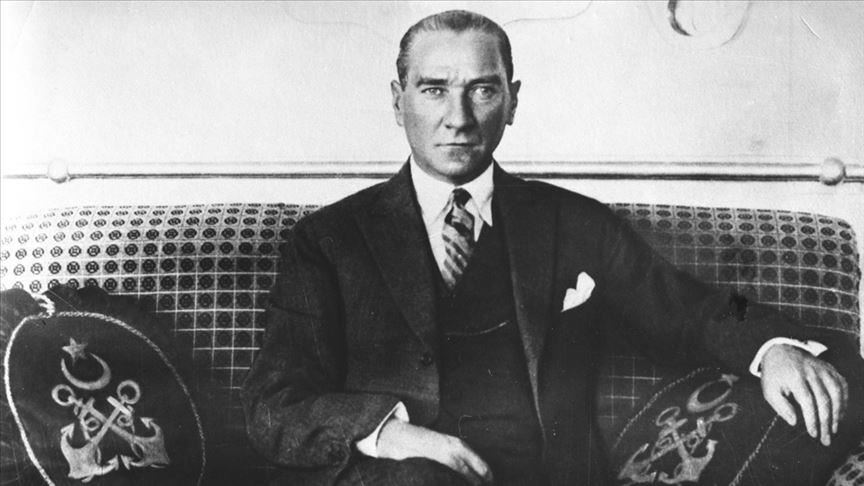Turkish authorities closed off the mausoleum of Turkey’s founder Mustafa Kemal Atatürk and other monuments honoring him on Friday, barring non-government organizations from celebrating the 97th anniversary of a 1923 treaty that defined the borders of modern Turkey.
The restrictions on events commemorating the day the Lausanne Treaty was signed came as Istanbul’s Hagia Sophia opened for Muslim prayers. Turkish President Recep Tayyip Erdoğan on July 10 ordered the Hagia Sophia open to Muslim worship after Turkey's highest administrative court ruled that Atatürk’s decree to repurpose the Ottoman-era mosque into a museum was illegal.
Representatives from the Kemalist Thought Association (ADD), the Association for Supporting Contemporary Life (ÇYDD), as well as various other NGOs and bar associations were slated to visit Anıtkabir, Atatürk’s final resting place, but found the site barricaded off by Ankara police on grounds of disinfecting the site against Turkey’s COVID-19 epidemic, said Haber 3 reported.
"It has become a crime to speak of Atatürk, the Republic and Lausanne to defend the foundations of the Republic of Turkey. We are barred from entering Anıtkabir,” the news website quoted ADD chairman Hüseyin Emre Altınışık as saying.
“We cannot accept this. Until we are allowed inside, we will wait here and continue our struggle. Today, Hagia Sophia is free, Anıtkabir is banned."
Turks on social media slated the government for the Anıtkabir’s closure. One Twitter user wondered why Turkey’s main opposition Republican People’s Party (CHP) did not comment on the matter.
“There is even better opposition in primary school election,” he said.
Another user tweeted: “Whose idea do you think it is to arrange a mass prayer at the Hagia Sophia, as if in a counter-revolution, and close Anıtkabir because they are ‘disinfecting’ it?”
Throughout his tenure as Turkey’s head of state, Erdoğan and his ruling Justice and Development Party have systematically chipped away at Turkey’s secular foundation by pressing a more Islamist-oriented agenda. The Hagia Sophia’s conversion – a long-standing demand by Turkey’s Islamists – was seen as another step toward the president’s lifelong political goal.
Earlier on Friday, Altınışık said non-government organisations had intended to lay wreaths at Atatürk monuments in Turkey’s 81 provinces but were notified of a ban for such gatherings by provincial and district governors via telephone, according to ABC newspaper.
"There is no official writing, there is only telephone. Our branches wanted to know the rationale for this ban, but they just said, ‘We got instructions by phone’,” Altınışık said. “All our branches had made their applications to their respective provincial and district governors 10 days ago.”
The Treaty of Lausanne was signed in 1923 to officially settle the conflict stemmed from World War I between the Ottoman Empire and Allied countries. The peace agreement defined the borders of the modern Turkish Republic.
Izmir’s Metropolitan Municipality said it would continue on with a series of events to mark the Lausanne Treaty anniversary, which was expected include film screenings, exhibitions, presentations and music performances, starting at 17:00 local time, according to ABC.

No comments:
Post a Comment